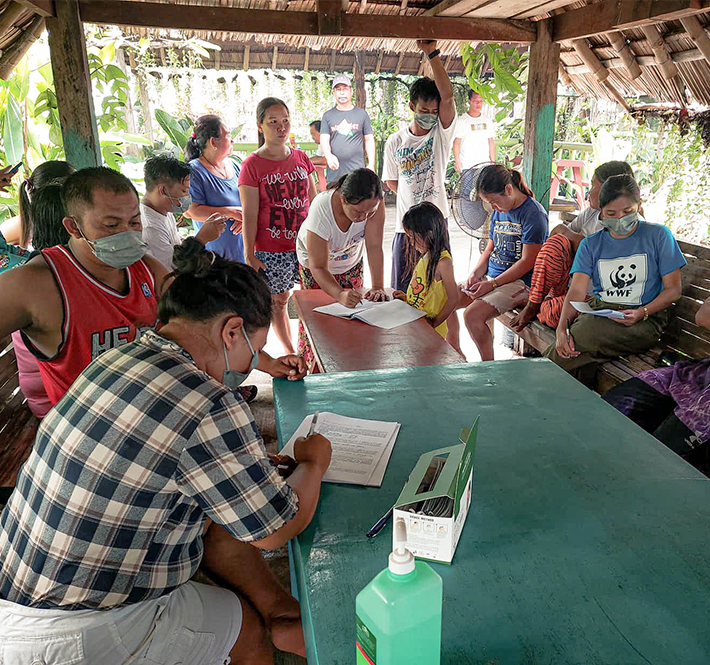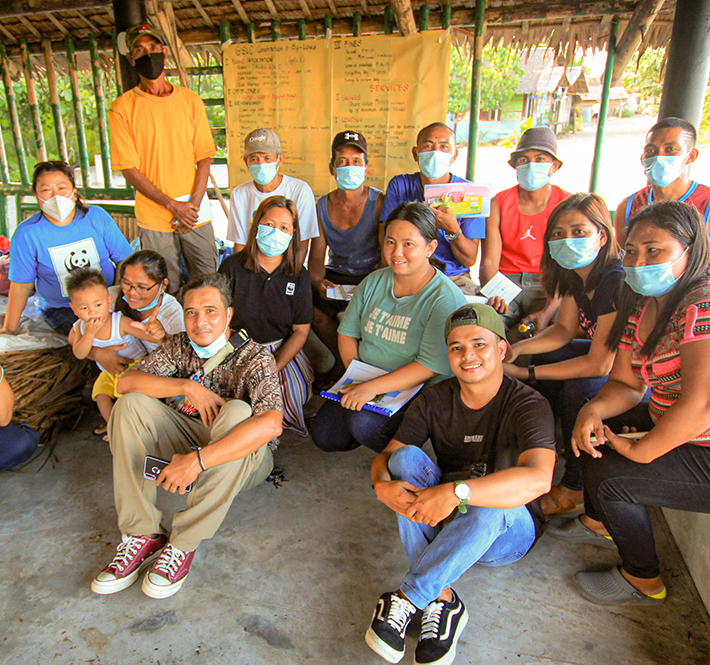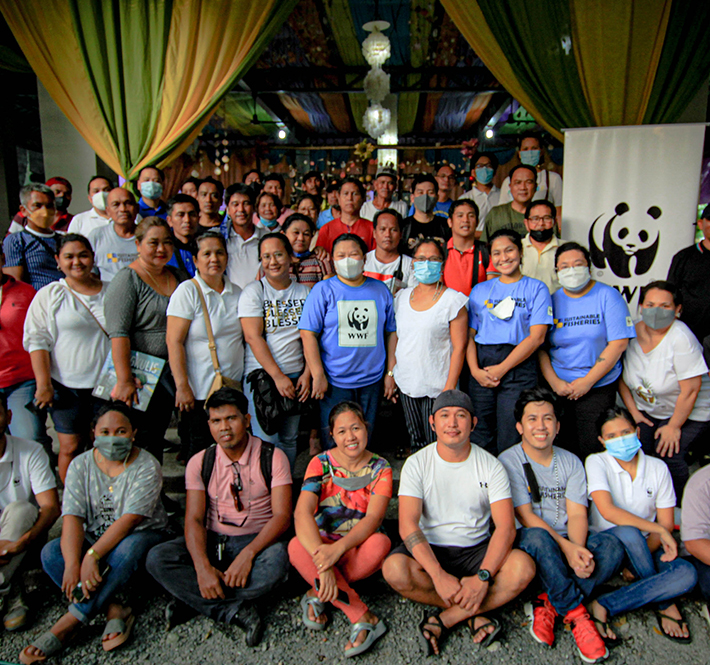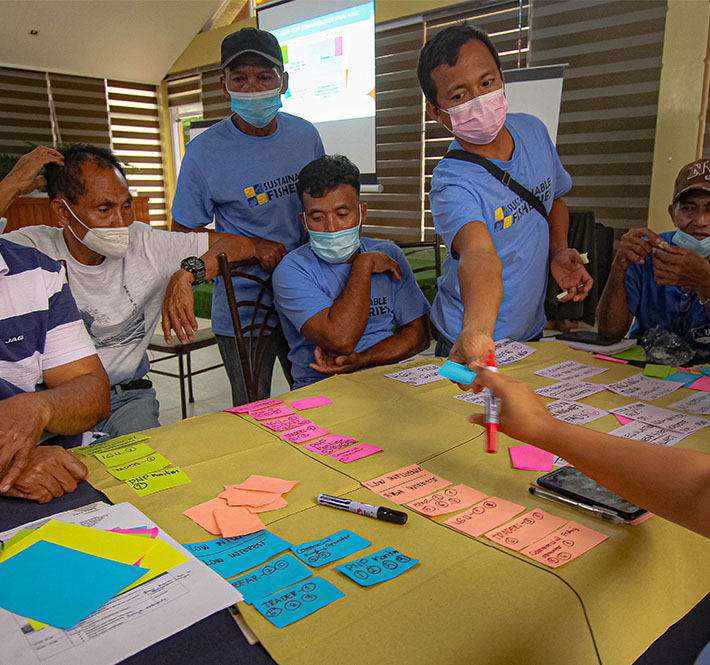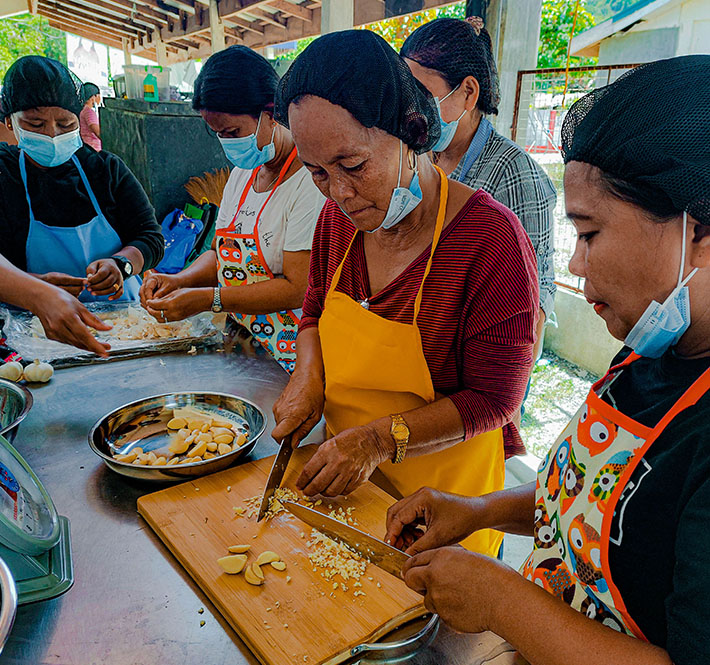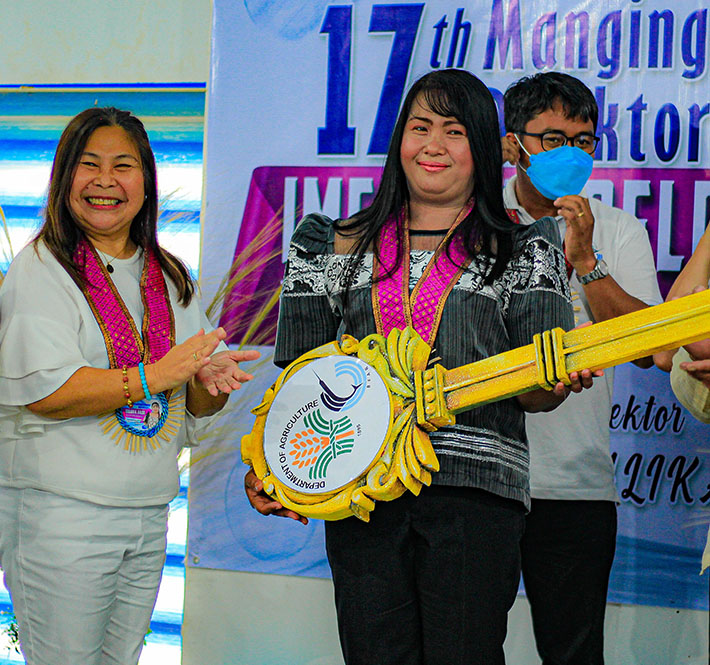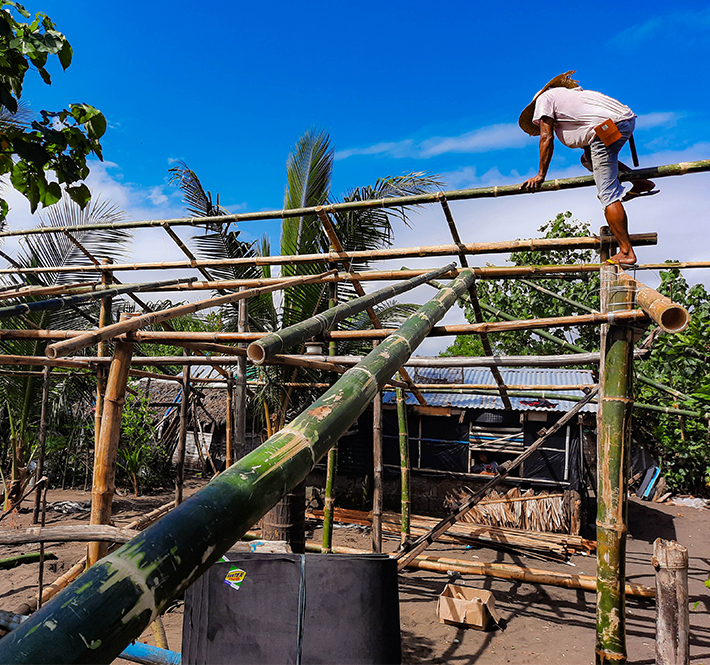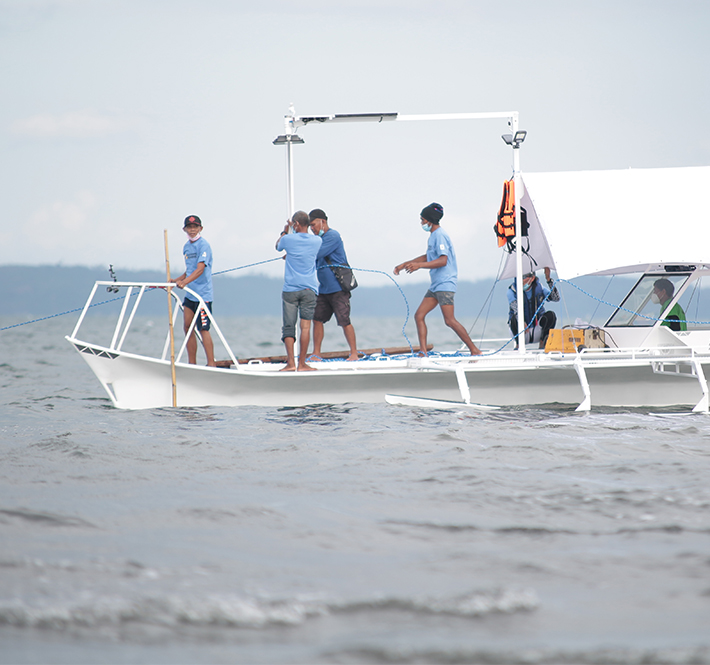The yellowfin tuna fisheries of the Western and Central Pacific Ocean (WCPO), all take from the same shared stock of the sleek-backed pelagic fish. Patrolling a geographic location that encompasses much of the WCPO, these yellowfin tuna are assessed as a single stock - one that needs cross-border collaboration to protect.
WWF-Philippines is working to help yellowfin tuna fisheries thrive not just in the Philippines, but beyond.
Over the past decade, WWF-Philippines has been working to uplift the livelihoods of local yellowfin tuna fishers. Through the Sustainable Tuna Partnership (STP) project, the conservation organization has helped stakeholders come together from all across the tuna supply chain to lobby, together, for sustainable practices and for the rights of small-scale fishers.
The work of STP 1 led to the formation of the Philippine Tuna Handline Partnership (PTHP), a coalition of traders and fishers committed to bettering their fisheries. On the 19th of October, 2021, they were awarded Marine Stewardship Council certification - a historic first for the Philippines.
With STP 1 wrapped up, WWF-Philippines sought out ways to bring more wins for yellowfin tuna fisheries not just in the Philippines, but beyond.
The STP 2 project was designed as a continuation of WWF-Philippines’ fisheries work throughout the past decade. Ineffective fisheries management and the continued practice of Illegal, Unreported and Unregulated (IUU) fishing continues to put pressure upon the yellowfin tuna fisheries of the WCPO. This is compounded by the threat posed by climate change, which threatens coastal communities and the livelihoods of those who rely on the sea for livelihood.
STP 2 is working towards six key outcomes:
Harvest strategies and harvest control rules across the Western and Central Pacific
Yellowfin tuna recognize no geopolitical borders. The yellowfin tuna stock of the WCPO covers the sovereign borders of many different nations, and their protection requires agreements that transcend national boundaries. STP 2 lobbies with the governments of China, Indonesia, the Philippines and other key countries of the Western and Central Pacific Fisheries Commission (WCPFC) to adopt harvest strategies and harvest control rules as their commitment to the conservation of the regions’ fisheries.
Strengthened multi-stakeholder dialogue platforms
Over the past decade WWF-Philippines pursued avenues to bring together stakeholders from across the tuna supply chain, to discuss how best to manage their fisheries. STP 2 seeks ways to bolster these platforms, to better advance the needs and interests of small-scale fishers.
Improved transparency in tuna fishing
Key to sustainable fisheries is the ability to tell where fish has been sourced from. With good traceability measures in place, we can better understand the effect tuna fishing has on habitats and on the larger marine ecosystem. Through GPS technologies and the on-ground implementation of enabling policies, the STP 2 project is pushing for transparent, responsible yellowfin tuna fishing.
Improved registration, licensing and catch documentation
Sustainable fisheries need good management. The STP 2 team works to close gaps in the management of the Philippines’ yellowfin tuna fisheries by helping fishers register their boats, renew their licenses, and report their catches.
Improved entrepreneurial and organizational management
Part and parcel to STP 2 is helping fishers help themselves. By building the organizational capacities of their partner fishers, the STP 2 team helps to uplift their communities and secure better lives for themselves, rooted in the principles of sustainable fishing.
Increased disaster preparedness and financial management
Recent years have seen powerful storms ravage the coastal communities of the Lagonoy Gulf and Mindoro Strait. Climate change is an existential threat to the Philippines. STP 2 is rolling out disaster preparedness training with its partner fishers, while guiding them to better manage their communities’ finances so that they may weather the coming storms.
The yellowfin tuna does not recognize our borders, and their habitats ignore the lines we have drawn on our maps. By crossing these boundaries and collaborating across borders, and by safeguarding the livelihoods of small-scale fishers, the STP 2 team hopes to help yellowfin tuna fisheries flourish and thrive.
LATEST STORIES
New Study on Fisher Registration and Licensing Launched
A new study being conducted by the World Wide Fund for Nature Philippines’ (WWF-Philippines) Sustainable Tuna Partnership
24 GSLCs Established in Coastal Communities
A total of 24 Group Savings and Loans Councils have been set up in coastal communities in Lagonoy Gulf and Mindoro Strait as of the end of the second quarter of 2022.
WWF-Philippines Holds MSP Dialogue in Mindoro
Groups from across the Mindoro fishery supply chain took part in a workshop hosted by the World Wide Fund for Nature (WWF) Philippines last
First MSP Dialogue Meeting Held in Bicol
On the 26th of May, the World Wide Fund for Nature Philippines (WWF-Philippines)
Mindoro Women Get Livelihood Support
Throughout the month of April, the World Wide Fund for Nature (WWF) Philippines donated food processing
Women Take the Lead in Mindoro and Bicol
This World Tuna Day, women are leading the way toward sustainable fisheries.
Food sheds rise in Lagonoy Gulf
As of late March, 2022, the World Wide Fund for Nature (WWF) Philippines
New project guns for regional yellowfin tuna sustainability
Launched this February, the Sustainable Tuna Partnership 2 project will be lobbying
